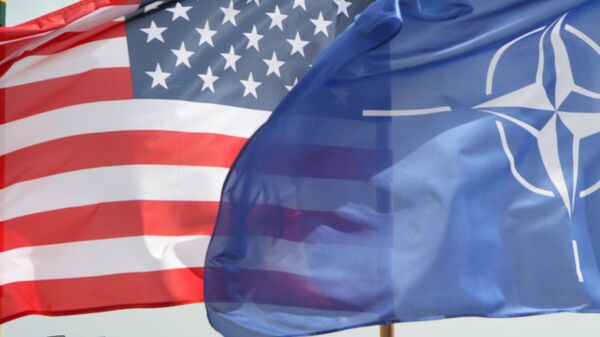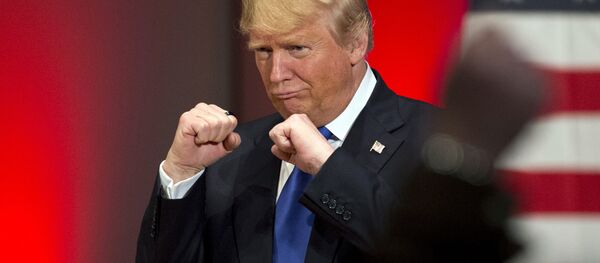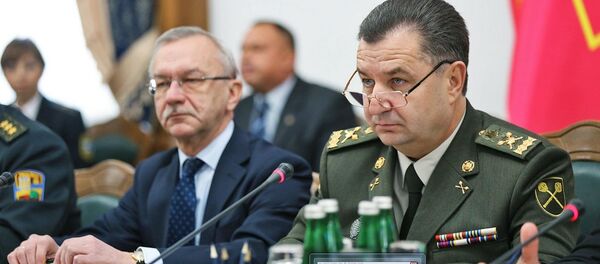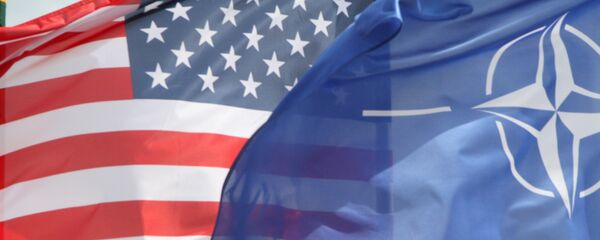WASHINGTON (Sputnik) — Before his election victory over Democrat Hillary Clinton this week, Trump as a candidate promised to avoid military adventurism and long troop deployments around the world to focus on challenges at home.
"Trump may demand his NATO partners take seriously their burden-sharing obligations in terms of the collective defense expenditures of the Western alliance," defense analyst and Inter-American University of Puerto Rico professor Lajos Szaszdi said.
Washington might also call on Arab states in the Persian Gulf as well as its partners in the Pacific to assume a greater share of their self-defense responsibilities, lessening dependence on US military power.
"Under Trump, if he fulfills what he promised, the United States would abandon the aggressive and interventionist policies of the Clinton, George W. Bush and Obama administrations while trying to seek peace in international relations," Szaszdi asserted.
There is also potential for US disengagement from Syria and Iraq once the Islamic State has been defeated, Szaszdi claimed, if Washington abandons many of its current policies.
"In this sense, the US should stop aiding and sponsoring Islamist Sunni terrorist groups in Syria, stopping first and foremost its sponsored flow of weapons to the Islamic State," the scholar said.
In his view, US allies in Europe must play a major role in rebuilding Syria once its civil war ends and in resolving the refugee crisis there.
"Reconstruction of the destroyed urban infrastructure would be needed for the return of the refugees, together with a jump-start of economic activity in the parts of the country devastated by war," Szaszdi stated.
On the campaign trail, Trump promised to initiate a working relationship with Russia that could include a military and intelligence partnership to defeat the Islamist State in Syria, Iraq and Libya.
The New York real estate developer might also look to cooperate with Russia on space initiatives, arms control, restoration of peace in eastern Ukraine and renegotiating the Iran nuclear treaty.
Beyond diverting taxpayer money to domestic programs, Trump should consider investing in US defenses against asymmetrical cyber threats, Szaszdi believes.
"He would need strong cyber defenses to guard [US] industrial and national security secrets, and top-notch cyber warfare technology to spy on the competitors and to respond to cyberattacks with overwhelming cyber power," he asserted.
"President Trump will almost certainly make some type of public effort to shift onto our allies more of the financial and military burden the United States has been bearing over the years," Moss predicted.
He also said China, Russia and Iran are likely to see how far they can push into traditional US spheres of influence without provoking a strong response from the Trump White House.





